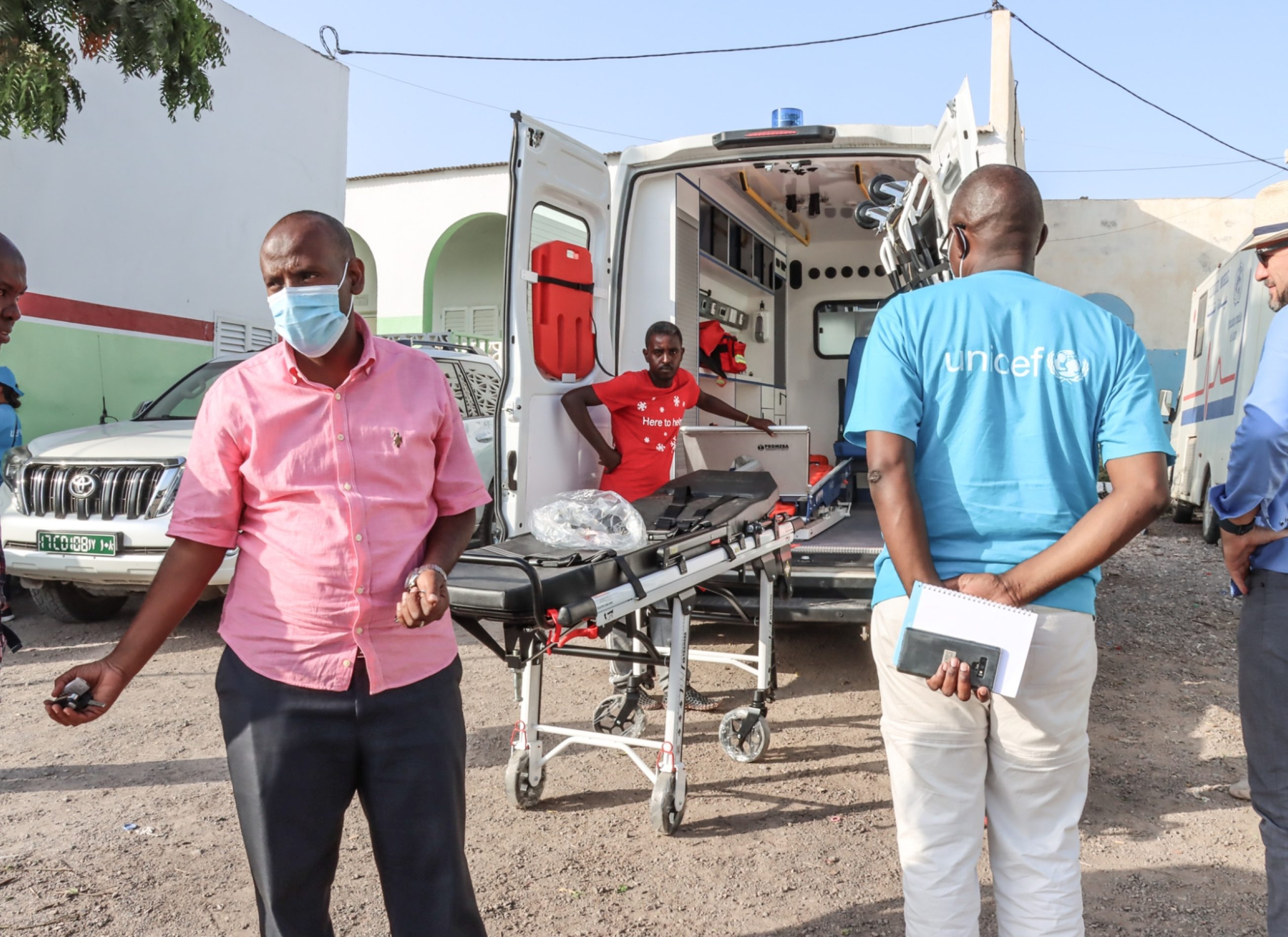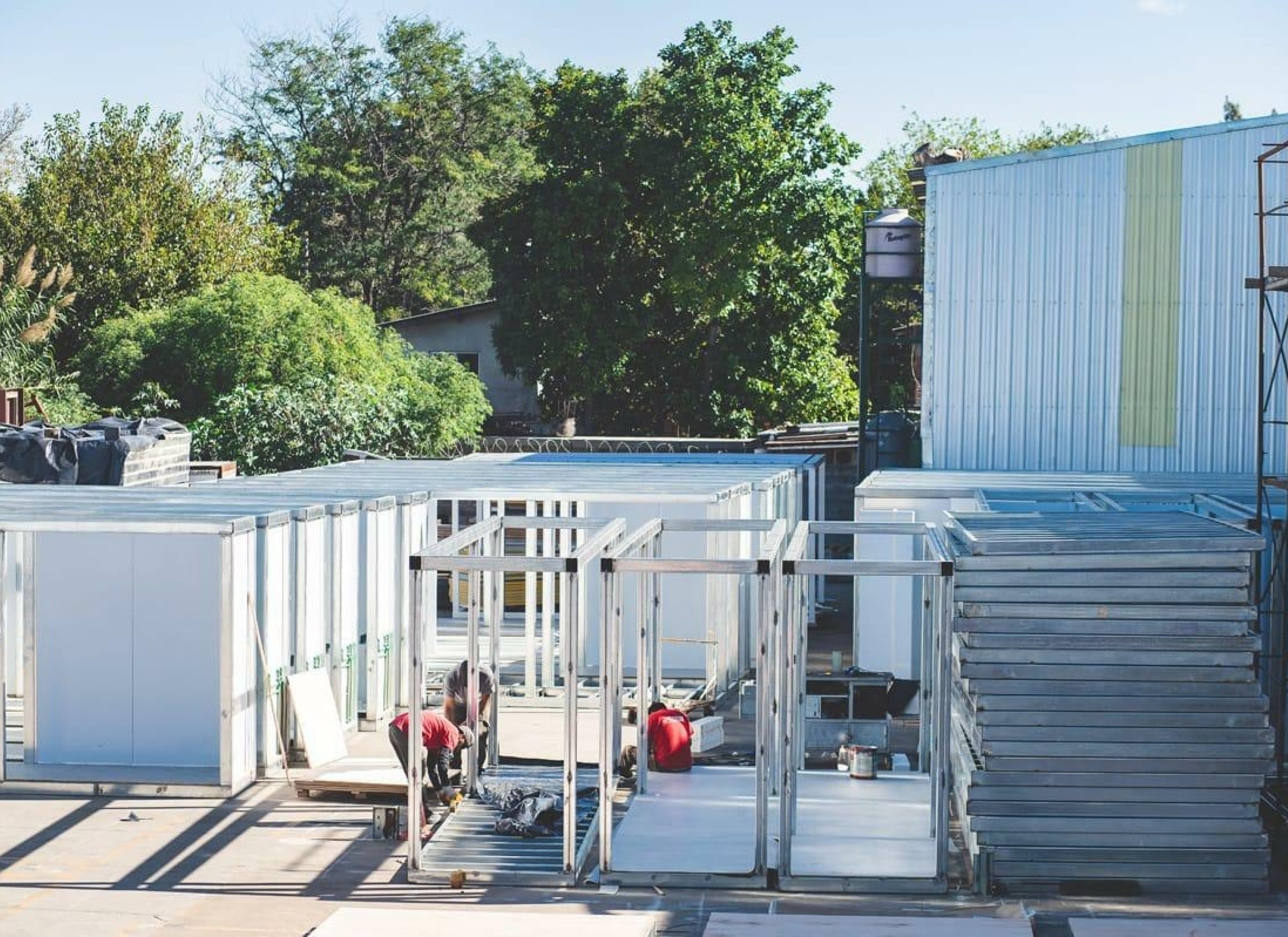Every month, more than 3,000 women give birth and up to 4,000 children are treated at Al Sabeen Hospital in Sana'a, Yemen. As the country’s leading maternal and children’s hospital, it receives referrals from all over the country and employs a large number of physicians and consultants specialized in the treatment of rare diseases.
Tackling a health crisis
Explore how the rehabilitation of one of Yemen’s leading hospitals is enabling doctors to provide better care.
But despite the hospital’s critical role in providing maternal and pediatric healthcare, poor conditions and ill-equipped wards presented numerous challenges.
The hospital could not provide efficient or high-quality services because it was dilapidated. We were facing a lot of difficulties in our work. Doctors would sometimes need to overprescribe antibiotics to try to prevent the spread of infectious diseases.
A critical situation
Over the past 8 years, the ongoing conflict in Yemen has left more than 20 million people in need of humanitarian assistance and has significantly deteriorated the health of people across the country. Maternal health, child malnutrition, immunization rates and outbreaks of communicable diseases, in particular, have worsened, putting additional strain on already overstretched health services.

In Yemen, one mother and six newborns are estimated to die from childbirth complications every two hours. More than two-thirds of the population lack access to basic healthcare. The need for better health facilities and quality services is critical.
50%
of fully functional health facilities
Did you know?
Only 50 per cent of Yemen’s health facilities are fully functional. This – along with a shortage of specialists, equipment and medicines, coupled with deteriorating infrastructure – presents huge obstacles to the provision of healthcare.
As part of broader humanitarian response efforts to address some of Yemen’s most acute healthcare challenges, UNOPS partnered with KfW – the government of Germany’s development bank – to rehabilitate and equip key public health facilities based on the needs of the population.
Al Sabeen Hospital was the first health facility selected to undergo renovation works, which included rehabilitating and equipping its wards. The hospital’s water infrastructure was also upgraded and the lighting system replaced to increase energy efficiency. Specific attention was paid to infectious disease control in response to the COVID-19 pandemic and the country’s increased vulnerability to outbreaks and epidemics. This involved equipping several wards to enable them to also operate as isolation units when needed.
More than 130,000 people will benefit from the improved facilities at Al Sabeen Hospital. Thanks to our partnership with the government of Germany and KfW, the hospital is in a much better position to continue providing critical healthcare to Yemeni mothers and their children.
Making an impact
The improvements at the hospital are already being noticed by the patients and employees. The staff are now able to carry out their work better thanks to the renovations.

After the hospital was renovated, the situation changed drastically. Now, we are more comfortable. We can coordinate and organize our work better. The situation is completely different.
New state-of-the-art equipment is helping specialists provide better treatment. A 4D ultrasound scanner, for example, helps Dr. Sabaa Amer (pictured), a radiologist, investigate further when fetal anomalies are detected. “It is one of the best machines we received. [The hospital] has a lot of cases that involve patients with deformities, which are common nowadays mostly due to the war,” she explains.
Medical professionals from the Ministry of Health provided training on how to operate and maintain the new equipment, helping to ensure it can be used to save lives for years to come.
Explore more about the project
More about the project
The Strengthening Resilience through Enhancing Health Service Facilities in Yemen project is funded by the government of Germany through the KfW Development Bank. The $75 million project aims to improve access to quality healthcare services by renovating infrastructure, improving medical equipment and providing hospital furniture as well as increasing capacity. Through the project, 19 health facilities have been rehabilitated and 21 hospital wards have been renovated and equipped to function as isolation units in the governorates of Aden, Al Mahweet, Hadramout, Lahj and Sana’a.
The project is aligned with the health objectives of the 2019 Yemen Humanitarian Response Plan, which includes improving access to primary and secondary healthcare; enabling hospitals to respond to outbreaks and epidemics; and restoring functionality to closed or damaged health facilities.
The Strengthening Resilience through Enhancing Health Service Facilities in Yemen project is funded by the government of Germany through the KfW Development Bank. The $75 million project aims to improve access to quality healthcare services by renovating infrastructure, improving medical equipment and providing hospital furniture as well as increasing capacity. Through the project, 19 health facilities have been rehabilitated and 21 hospital wards have been renovated and equipped to function as isolation units in the governorates of Aden, Al Mahweet, Hadramout, Lahj and Sana’a.
The project is aligned with the health objectives of the 2019 Yemen Humanitarian Response Plan, which includes improving access to primary and secondary healthcare; enabling hospitals to respond to outbreaks and epidemics; and restoring functionality to closed or damaged health facilities.
Explore further













